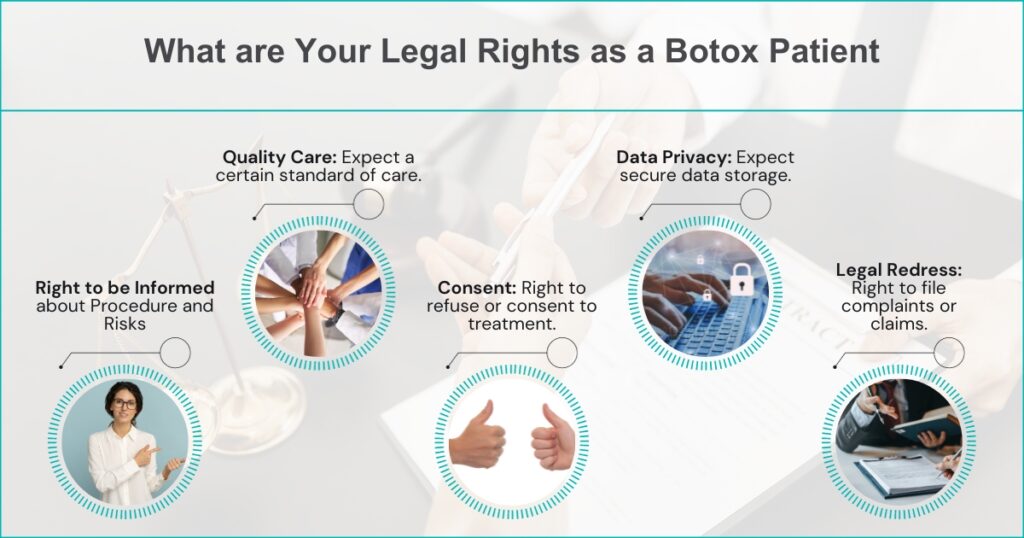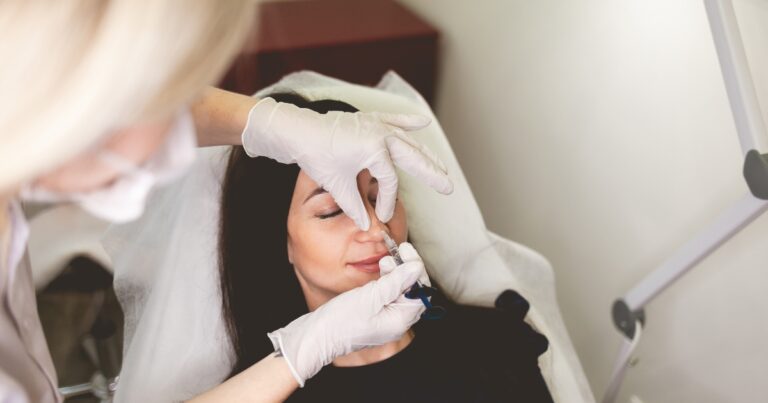As Botox procedures continue to gain traction in Dubai, a complex legal framework governs this growing trend. Patients considering Botox treatment should choose a licensed medical professional familiar with the DHA regulations.
Let’s explore what are the government regulations, credentials for Botox providers, and patient rights regarding Botox treatments.
The Growing Popularity of Botox Treatments in Dubai
Botox treatments in Dubai have become a booming industry, thanks to the city’s increasing focus on beauty and wellness. The rise in demand has led to a surge in clinics and healthcare providers offering Botox services. However, this growth also necessitates a greater scrutiny of the legal framework surrounding these treatments.
| Factor | Description | Impact on Popularity |
| High Demand | Increasing interest in aesthetic treatments | Positive |
| Variety of Clinics | Availability of multiple options for consumers | Positive |
| Tourism Boost | Attraction of international clientele | Positive |
| Economic Impact | Contribution to the local economy | Neutral |
| Younger Demographics | More young people opting for treatments | Positive |
| Legal Scrutiny | Increased regulations for safety | Negative |
Understanding the Legal Framework for Botox Treatments: Federal Laws and Regulations
Federal laws in the UAE provide a detailed set of rules governing Botox treatment administration in Dubai. These laws aim to safeguard both practitioners and patients. Both parties must understand these rules to avoid legal repercussions.
Book A Consultation With Dr Tarek Bayazid
Top-rated Plastic Surgeon For Botox in Dubai
Installment Plan Available
- Licensing Requirements: Federal laws stipulate the need for proper credentials for clinics.
- Practitioner Guidelines: Laws provide detailed requirements for the qualifications of healthcare providers.
- Patient Safety: Regulations include strict protocols for ensuring patient safety during treatments.
- Consent Forms: The law mandates the use of patient consent forms.
- Legal Consequences: Violating federal laws could result in severe penalties, including license revocation.
- Regular Updates: Laws and guidelines are updated regularly, requiring constant compliance checks.
Required Qualifications for Practitioners Administering Botox

In Dubai, only licensed medical professionals are allowed to administer Botox treatments. The qualifications include specialised training and certifications.
- Medical Degree: A primary requisite is a valid medical degree from a recognised institution
- Specialised Training: Practitioners must undergo specialised training in administering Botox
- License Renewal: Licenses must be renewed periodically, per regulatory requirements
- Credential Checks: Random inspections are performed to verify qualifications
- Legal Liability: Practitioners face liability for malpractice or lack of proper qualifications
- Continuous Education: Regular updating of skills and qualifications is advised
Practitioners need to maintain these credentials to offer services legally and determine whether Botox is toxic to the human body or not.
The Importance of Clinic Licenses and Certifications
Clinics in Dubai must be licensed by the Dubai Health Authority and comply with local and federal regulations. These licenses ensure that the clinics meet the standards for equipment, safety protocols, and staff qualifications. Non-compliance can result in severe consequences.
| Requirement | Reason | Enforcement |
| Dubai Health Authority | Regulatory approval | Inspections |
| Safety Protocols | Patient safety | Regulatory guidelines |
| Equipment Standards | Quality of service | Audits |
| Staff Training | Skill enhancement | Employee records |
| License Renewal | Compliance | Renewal process |
| Regular Inspections | Ongoing compliance | Scheduled checks |
Patient Consent Forms: What You Need to Know?
Before undergoing a Botox treatment, patients are required to sign a consent form. This document outlines the procedure, the botox technique, potential risks, and terms of service. It serves as a legal contract between the practitioner and the patient.
- Legal Requirement: Consent forms are mandated by law
- Full Disclosure: Forms must include details of the procedure and potential side effects
- Patient Acknowledgment: Patients must acknowledge that they understand the risks involved
- Record-keeping: Consent forms are kept as legal records for a set period
- Refusal Rights: Patients can refuse treatment, even after signing the form
- Provider Accountability: Consent forms hold the provider accountable for meeting outlined terms
Legal Consequences for Unlicensed Botox Providers

Operating without a license can result in severe penalties, including hefty fines and potential imprisonment. Unlicensed providers pose a significant risk to patient safety and are subject to legal prosecution as they are unaware of Innovative Botox Applications.
- Monetary Penalties: Fines can range from thousands to millions of dirhams, depending on the violation
- Imprisonment: In extreme cases, jail terms can be imposed
- License Revocation: Licensed providers caught violating rules may lose their license
- Legal Cases: Patients can file lawsuits against unlicensed providers
- Public Notice: Names of unlicensed providers may be publicly disclosed
- Ban on Practice: Unlicensed practitioners may be banned from practising in healthcare
Patient Confidentiality and Data Protection Laws
Patient’s privacy is protected by data-protection laws that mandate the secure storage and handling of personal information. Any breach of these rules could have significant legal ramifications for the clinic and practitioner involved.
- Data Encryption: Patient records must be securely stored.
- Confidentiality Agreements: Staff must sign agreements to uphold patient confidentiality.
- Data Breach Penalties: Fines may be imposed for any data breaches.
- Patient Rights: Patients have the right to access their medical records.
- Legal Obligations: Clinics have the legal obligation to protect patient information.
- Regulatory Audits: Clinics may be subject to audits to ensure data protection compliance.
Navigating Malpractice Claims in Botox Treatments
Patients have the right to file a malpractice claim when a Botox treatment fails to meet established medical standards. The process involves legal intricacies that require expert advice and due diligence from both sides.
- Legal Representation: Patients may need legal counsel to navigate a malpractice claim
- Documentation: Adequate documentation of the procedure and outcomes is essential
- Expert Testimony: Expert opinions may be sought to strengthen a case
- Time Limitations: There are statutory limits within which a claim must be filed
- Settlement Options: Some cases may result in settlements outside of court
- Legal Precedents: Past court cases can influence the outcome of a malpractice claim
Your Legal Rights as a Botox Patient: A Brief Guide

Patients have specific rights when undergoing Botox treatments, including the right to information, quality care, and confidentiality. Awareness of these rights is essential for a patient’s safety and peace of mind.
- Right to Information: Patients must be informed about the procedure and its risks
- Quality Care: Patients have the right to expect a certain standard of medical care
- Consent: The right to refuse or consent to treatment is essential
- Data Privacy: Patients can expect their data to be securely stored
- Legal Redress: The right to file a complaint or legal claim is guaranteed
- Accessibility: Patients have the right to access their medical records whenever required
Understanding the legal considerations of Botox treatments in Dubai isn’t just a requirement for medical professionals; it’s crucial for patients, too. Both clients and practitioners can now navigate the aesthetic landscape responsibly with this article’s broad overview of legal aspects.
After learning about Botox treatments and the legal aspects surrounding the procedure in Dubai, taking the next step with a trusted expert is crucial. Dr Tarek Bayazid, a premier plastic surgeon in Dubai, specializes in facial rejuvenation and body contouring. With an advanced approach, including his signature “composite deep plane facelift,” he ensures natural yet transformative results.
Dr Tarek holds a number of highly prestigious credentials, with licenses from the Serbian Medical Chamber and the Dubai Health Authority. His association with prestigious organisations like the International Society of Aesthetic Plastic Surgery (ISAPS) and the Melbourne Advanced Facial Anatomy Course (MAFAC) adds further credibility to his practice.
Don’t settle for anything less when it comes to your aesthetic aspirations. Book a consultation with Dr Tarek today to experience his patient-focused, cutting-edge expertise firsthand.
FAQs
Is Botox legal in Dubai?
Yes, Botox is legal in Dubai. However, there are strict regulations governing its practice. Only licensed medical practitioners are allowed to administer Botox injections.
What Regulatory Standards Must Botox Clinics in Dubai Meet?
Clinics must secure the necessary permits from Dubai’s Health Authority and operate under national rules.
Who is Authorized to Perform Botox Procedures in Dubai?
Only licensed medical professionals with the requisite training can carry out Botox procedures.
What are the risks of getting Botox in Dubai?
The risks of Botox treatment are generally mild and temporary. However, there are some potential side effects, such as bruising, swelling, and redness. In rare cases, Botox can also cause more severe side effects, such as allergic reactions or nerve damage.
Is Legal Redress Available for Unsatisfactory Botox Treatments?
Individuals have the legal prerogative to pursue a malpractice case if their Botox treatment falls short of accepted medical practices.







